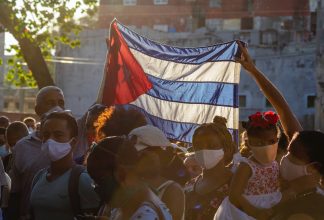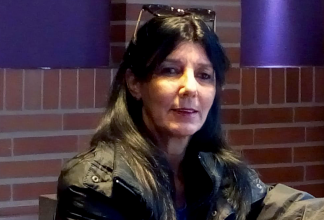Little Reason to Rejoice in Cuba Despite Positive Steps
Barack Obama’s speech given on December 18 was aimed at initiating efforts to “normalise” relations between the US and Cuba. However Civil Rights Defenders does not see that this step in itself will improve the human rights situation in the country.
Fidel and Raul Castro’s government has been and continues to be responsible for widespread human rights violations and persecution since ascending to power back in January 1959. They are also the architects of a political system that makes it impossible for Cubans to freely exercise their basic civil and political rights.
Barack Obama’s principal arguments as to why US policy towards Cuba needed to change is due to the fact that the recent past has demonstrated that its policy towards Cuba has failed to achieve the objective of contributing to democracy and respect for human rights. These same reasons led the European Commission to come to the same conclusion earlier in the year as they initiated negotiations with the Cuban government regarding the first bilateral agreement between the EU and Cuba.
Civil Rights Defenders is collaborating with the Cuban campaign organisation Por Otra Cubacontributing important inputs to the negotiations between EU and Cuba in order to achieve positive results when it comes to advancing human rights in the country.
It was a step in the right direction when the EU opened negotiations with Cuba in the spring, and it is now positive that the United States will revise its policy towards its southern neighbour.. Civil Rights Defenders therefore considers that at this stage it is necessary, and for the first time possible, that the USA and EU pursue a common policy when it comes to the issues of human rights and democracy in Cuba.
It is also positive that the US and Cuba will re-establish diplomatic relations and that travel restrictions to the island will be reduced. Moreover, it is encouraging for the entire region to see if the Cuban government critical tone towards the United States will now be somewhat tempered.
However, there is still no indication that Raúl Castro is interested in opening up the political system in the country. In a speech given on Cuban television also on December 18, Castro confirmed a new era in relations with the US but made no reference regarding changes when it comes to human rights. And last week, just one month before the round table discussions regarding the precise requirements that the EU should impose on Cuba with respect to human rights, Castro broke off the negotiations without giving any reason.
“The key to positive change in Cuba lies not with the Cuban government. It has had more than 50 years to show willingness to change. The key to unlock this situation lies instead in the power of a strong civil society based on the values of human rights. And when that power brings about political change in Cuba there will be a reason to rejoice,” said Erik Jennische, Latin America Programme Director, Civil Rights Defenders.


